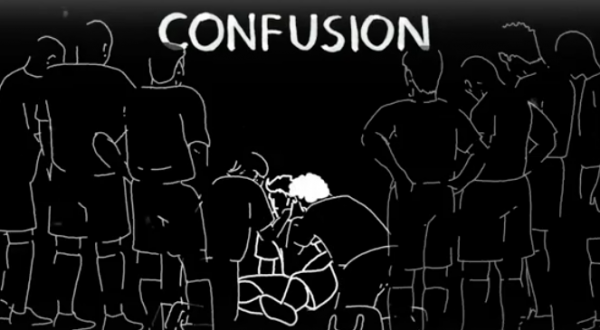ABOUT CONCUSSIONS

A concussion is a brain injury caused by a direct or indirect blow to the head which results in neurological and cognitive impairments.
A concussion should be managed seriously to prevent long term health effects like depression, fatigue or headaches.
FIFPro, together with concussion experts, created an animation video focusing on the most important information about concussion and about the desired reaction by players. FIFPro and the experts unanimously recommended to focus on the three following R’s:
• Recognise a possible concussion in a teammate or opponent;
• Report a suspected concussion to the technical and medical staff;
• Remove any player with a suspected concussion from the field.
FIFPro also produced a list with frequently asked questions about concussions.
FREQUENTLY ASKED QUESTIONS
Can you only get a concussion from a direct hit to the head?
NO - This is often misunderstood. Concussions also occur as a consequence of an indirect hit to the head: for instance a shoulder-to-shoulder contact. The impact of the hit is then transmitted to the head through another part of the body.
Can you only get a concussion when you are knocked out?
NO - This is another misunderstanding: a player does not have to be knocked out to be concussed. At least 95% of concussions occur without a temporary loss of consciousness.
Should you take a teammate who is knocked unconscious to the doctor or a hospital?
YES - When your teammate has a concussion and loses consciousness, he or she must stop playing and must go the doctor or hospital room, even if he/she says that he/she is feeling okay.
How many days does it normally take before symptoms of a concussion are completely gone?
10 - To fully recover, a proper rest period needs to be followed to provide the brain with sufficient time to heal. In 85% of the cases, symptoms of a concussion are gone after 10 days.
Can symptoms of a concussion last for several weeks?
YES - Concussion is an injury of the brain, which is a very complex part of your body. Sometimes symptoms of concussion, such as a headache, fatigue, anxiety or irritability, persist for several weeks or even months.
Do you need to be extremely cautious when determining whether a teammate should return to play?
YES - Directly after a concussion, your teammate might seem alright and might not show any symptoms of concussion. However, he/she must be removed from the field. After this concussion, your teammate must take enough time to fully recover and therefore, he or she should only return to full-contact training after at least 6 days of recovery.
Do you continue playing football while having a headache caused by a concussion?
NO - Experiencing a headache after a concussion is an indication that your brain has not fully recovered. Therefore, you shouldn’t play football and should inform the medical staff about the headache.
Could it be deadly if a second concussion occurs before the first one has healed?
YES - A second concussion can lead to a dangerous swelling of the brain if a player has not fully recovered from the first concussion. This could even happen when the second concussion occurs several weeks after the first concussion. It is still unclear why the brain swells dangerously after a second concussion, but it seems that the injured brain is unable to regulate blood flow after the second impact.
If you’ve had one concussion, are you more likely to have another?
YES - Concussed players have an increased vulnerability to subsequent concussions, especially those who did not recover properly from a previous concussion. A study among UEFA Champions League footballers showed that concussed players also have an increased risk to other injuries (e.g. hamstring, knee or ankle) in the season after a concussion occurred.
Is your long-term health and well-being at risk from multiple concussions?
YES - In 85% of the cases, symptoms of a concussion are gone after 10 days. However, multiple concussions can lead to physical, cognitive and emotional problems such as headaches, loss of concentration, loss of memory, irritability, sleep disturbance or depression.
Does being knocked unconscious always cause permanent damage to the brain?
NO - The damage to the brain caused by being knocked unconscious as a consequence of a concussion is not permanent and heals naturally with time. Therefore, a player should have a proper rest period to provide the brain with sufficient time to heal.
Can concussions lead to emotional disruptions?
YES - A concussion can damage the part of a brain that controls emotions and behaviour, which changes the way a player feels or expresses emotions. Sometimes, a concussed player cannot control these feelings or emotional expressions, leading to sudden episodes of crying or laughing.
Are concussions less important than other injuries?
NO - Concussions are less common in football than knee or ankle injuries, but that does not mean that concussions are less important. Concussions are significant injuries because they can lead to short- and long-term consequences which affect your career and your life.
